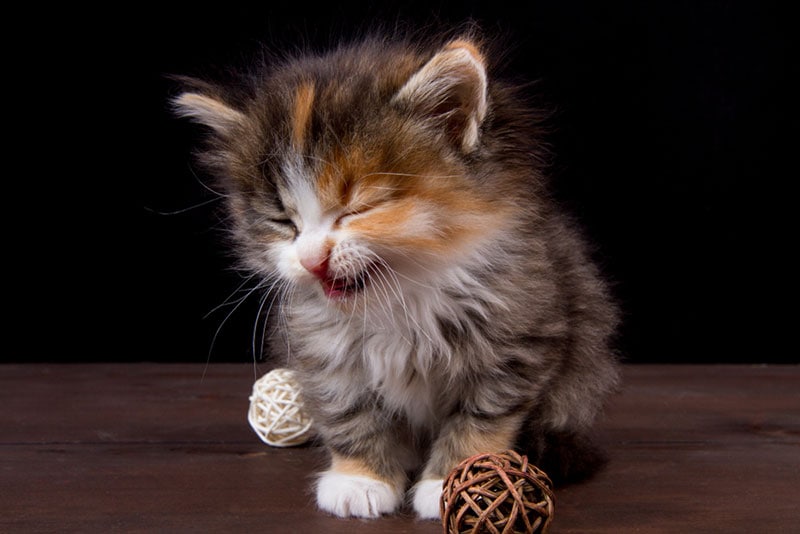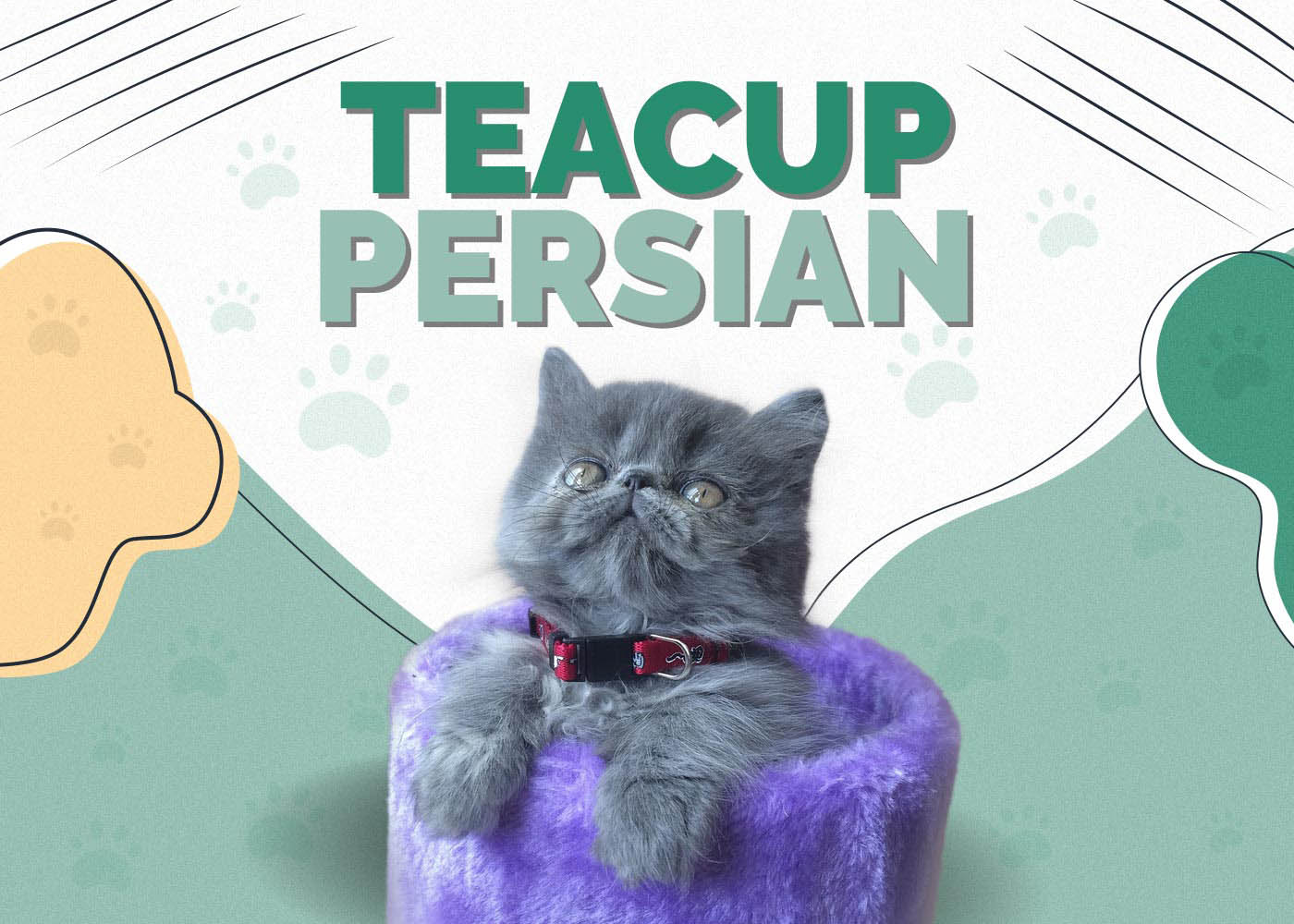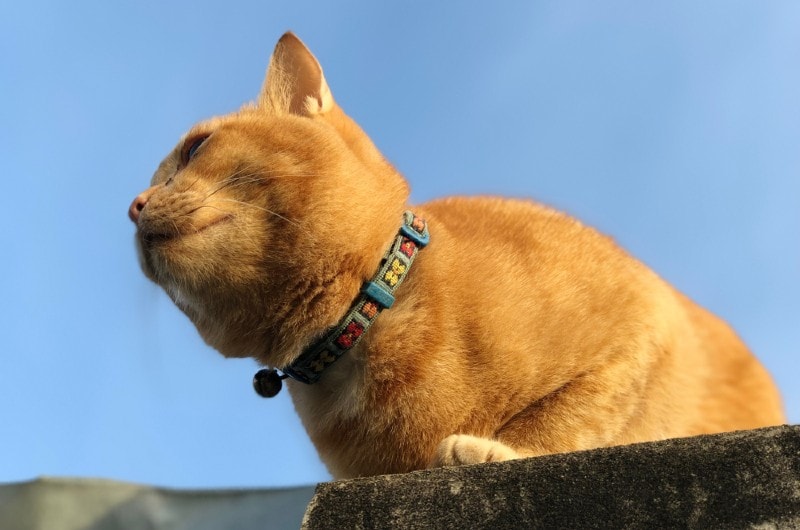Can Cats Eat Pear? Nutrition Facts & FAQ
By Oliver Jones
Updated on

Pears are packed full of the goodness of many essential vitamins and a significant amount of fiber. But is this superb healthy snack for us humans okay for our cats to eat?
Cats are obligate carnivores, meaning they must sustain themselves primarily with meat. However, a small amount of pear as a snack will not harm your cat. Indulging your cat with some of your pears will do them no harm, but there are a few key things to consider.
Read on to learn more about feeding pear to your cat, including the benefits, the risks, and how to prepare pears for them.
Is Pear Safe for Cats to Eat?
The flesh of pears is safe for cats to eat in small amounts. There’s no actual immediate harm in feeding them a lot of pears, except that it will fill them up and reduce the amount of actual nutritious food they consume. For this reason, pear should only be fed sparingly as a treat and not part of your cat’s diet. A cat’s diet should be sourced from nutritionally complete commercial diets such as kibble and canned food, which are designed to provide cats with all they need to survive.
However, what is not safe to feed your cat is the seeds of a pear. Pear seeds (as well as apple and stone fruit) contain cyanogenic glycosides, and this is commonly known as cyanide. Now don’t panic at the mention of this famous poison; it exists in such low amounts in seeds that it would take ingesting a considerable amount of them to be harmful. But for cats and their smaller frame, this amount will be much lower, so it is best to avoid feeding pear seeds entirely. Cyanide is toxic as it affects the blood oxygen levels in cells, which can be fatal at high doses.
Pear as a treat is not suitable or safe if your cat is on a strict medical diet. This is especially true if our cat has been diagnosed with diabetes, as the sugar content in pears can affect the blood sugar levels, causing them to spike. Obese cats should also avoid pear as a treat due to its sugar content.
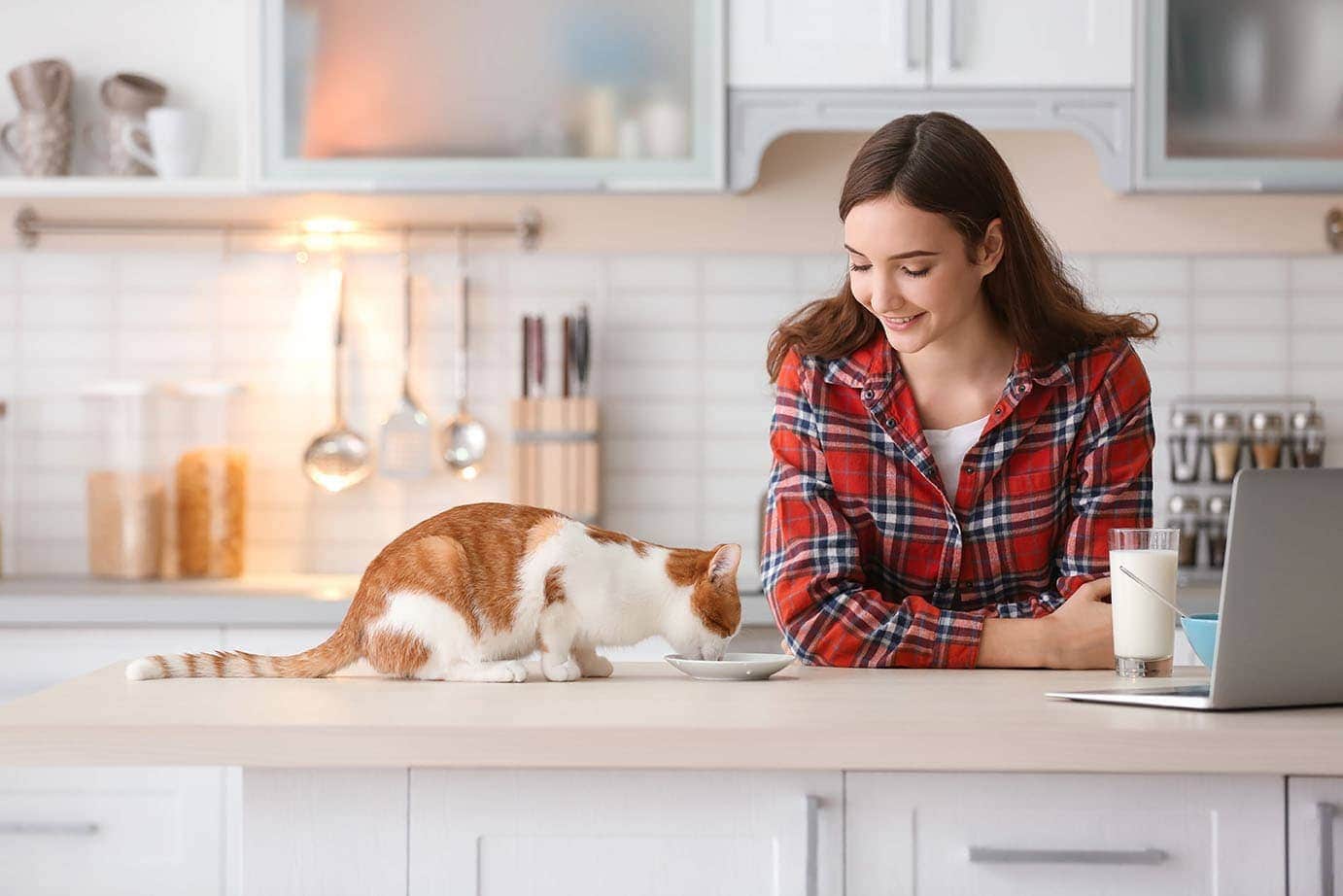
Nutritional Value of Pears
Nutritional Breakdown
| Nutritional value of pear (one small) | |
| Calories | 101 cal |
| Fat | 0.2g |
| Sugar | 17.2g |
| Protein | 0.6g |
| Fiber | 5.5g |
Additional Vitamins and Minerals
- Vitamin C
- Vitamin K
- Potassium
- Folate
- Niacin
- Antioxidants
Health Benefits of Pears
Pears contain a large portion of fiber content which aids digestion. They also are full of antioxidants, most derived from flavonoids in the skin of a pear. In fact, the skin has up to six times more antioxidants than the flesh alone. Antioxidants support the immune system and protect cells from toxins. Pears also help with immunity with the dose of vitamin C they provide, which supports cells in repairing themselves.
However, vitamin C is not needed in a cat’s diet as cats synthesize their own vitamin C in their livers.
A Guide to Feeding Pear to Cats
Pear Preparation
How you prepare a pear before feeding it to your cat will make a large difference. Offering them a whole pear will probably be a waste of time, right? For pear to be palatable for your cat, you should chop it up into small pieces and get rid of all seeds. The small size is mostly important for pear with skin as tough skin can be a choking hazard.
Before eating a pear yourself or giving it to your cat, you should wash the pear itself. Often produce has residue fertilizers and pesticides remaining on the skin. A warm wash in vinegar water and fresh water rinse will rid the pear of these chemicals.
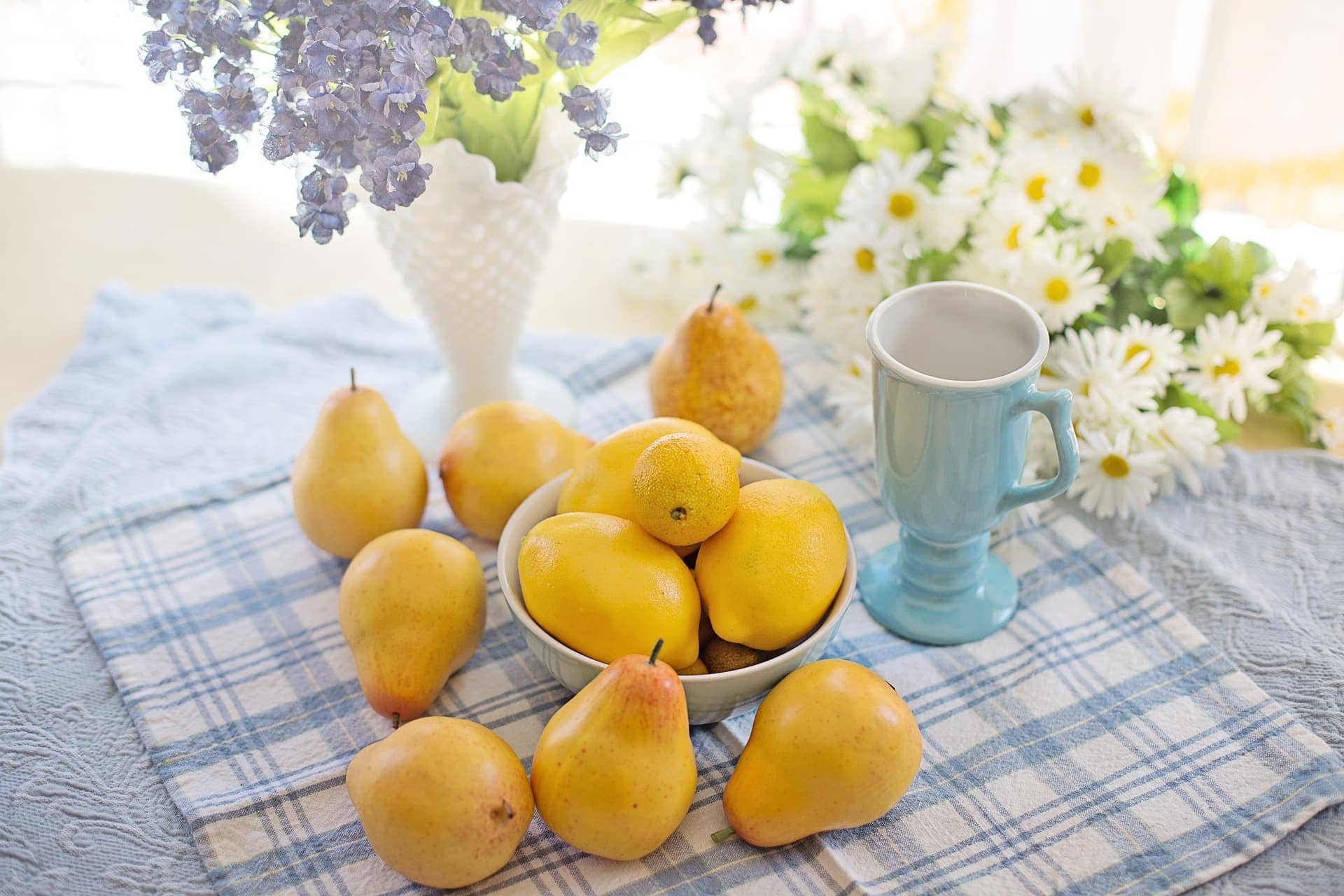
Fresh, Canned, or Dried?
Pears are consumed by us in more ways than a simple, fresh piece of fruit. Fresh pear is the best if your cat is to be offered some. Canned pears are often preserved in sugary syrups that are totally unsuitable for cats. The high sugar content can disrupt their metabolisms and contribute to tooth decay. Dried fruit is also not good for cats due to its high sugar content. In addition, the chewy texture of dried fruit can get stuck in a cat’s teeth.
Pureed pear with no additives may be suitable; in fact, it may be a great trick to get your cat to take medications if they love pear!
Moderation
The key to feeding pear to cats is moderation. As mentioned above, pears should also be a small and rare treat and by no means part of their regular diet. Fruit and vegetables are required in a carnivore’s diet. Fruits like pear also have a high proportional sugar content, which is not suitable for cats despite unrefined “healthy sugars.” Pears are also high in fiber, which in excess amounts can cause gastrointestinal upset and diarrhea, leading to dehydration.
Now that you know what you can safely feed your cat, it’s just as important to find a bowl that supports their health and well-being. With whisker-friendly bowls and a wide tray to catch any spills, our Hepper NomNom Cat Bowl is our favorite option.
Final Thoughts
In a nutshell, pear is okay for your cat to eat in small amounts. If your cat seems to enjoy this fruit, you can use it as an occasional treat if prepared safely, but many cats may not be interested in eating pear at all!
- Related Read: Can Cats Eat Kiwi?
Featured Image Credit: Pixabay


